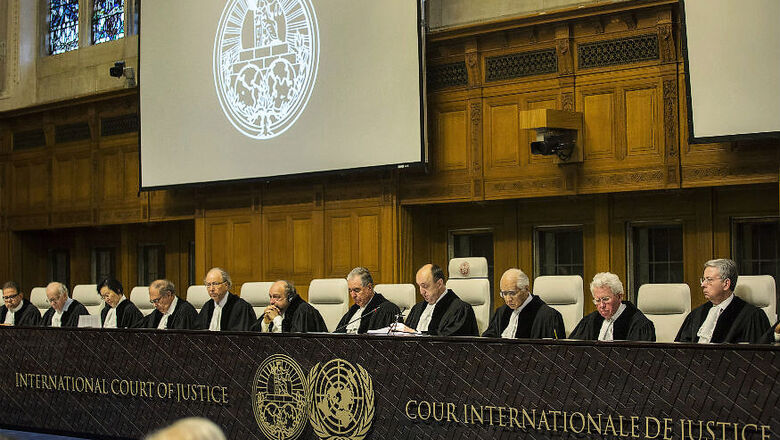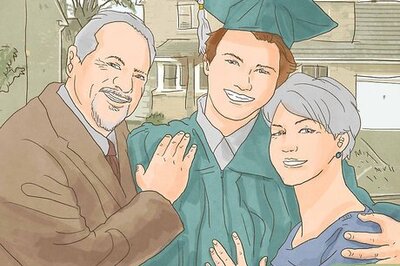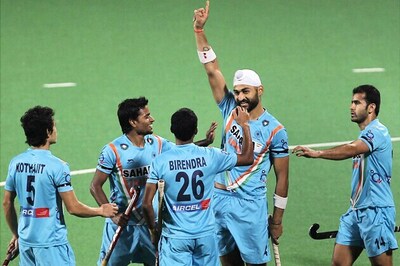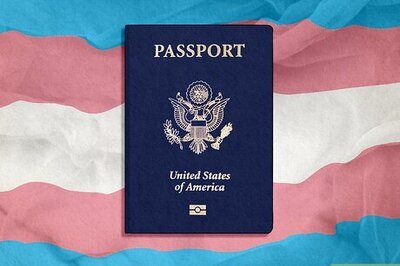
views
The Hague: Ukraine urged the UN's top court on Monday to help bring stability to its war-torn east, seeking to convince judges that Russia is "sponsoring terrorism" in Kiev's conflict with separatist pro-Russian rebels.
"Today I stand before the court to ask for the protection of the basic human rights of the Ukrainian people," Kiev's deputy foreign minister Olena Zerkal told the International Court of Justice in The Hague.
"Thousands of innocent Ukrainians have already suffered deadly attacks," she said.
Nearly three years of conflict have claimed about 10,000 lives in eastern Ukraine -- and led to Russia's seizure of Ukraine's southern peninsula of Crimea in 2014 -- pushing ties between Moscow and the West to their lowest point since the Cold War.
"Today I stand before the world to seek protection for the Ukraine from the Russian Federation," Zerkal added, saying all Kiev was seeking was "a measure of stability and calm in an unpredictable and dangerous situation."
Ukraine's representatives are asking the ICJ to impose emergency measures ordering Russia to stop its alleged funnelling of money, weapons and personnel into the east, and to halt what it called "discrimination" against minorities in Russian-occupied Crimea.
It is also seeking compensation for attacks on civilians during the conflict.
'Human rights emergency'
Moscow has long denied arming the rebels and has said the case is motivated only "by political interests".
It has also claimed that Kiev has "shown a lack of will to hold a concrete dialogue."
Ukraine lodged its case against its former Soviet master at the ICJ in mid-January, saying it had protested for several years against Moscow's alleged financing of separatist rebels battling Ukrainian government forces.
Kiev says Moscow has "largely failed" to respond to its efforts to resolve the dispute and that "further negotiations would be futile."
Ukraine now "respectfully requests the court to adjudge and declare that the Russian Federation bears international responsibility by virtue of its sponsorship of terrorism... for the acts of terrorism committed by its proxies in Ukraine," it said in papers before the court.
"Russia must stop the flow of weapons and assistance across its borders to groups that launch terrorist attacks against civilians," said Harold Hongju Koh, another of Kiev's representatives.
Ukraine was facing a "human rights emergency," he said, adding that "in Crimea, Russia must cease its campaign of cultural erasure."
Since Russia insists it has not violated any conventions if it "will not refrain, it must be because its behaviour is neither innocent, nor legal," added Koh, a professor in international law.
Failed talks
Rare talks between Ukrainian President Petro Poroshenko and Russian counterpart Vladimir Putin over last month proved "fruitless", the Ukrainian presidency said in a statement Thursday.
Poroshenko hailed the start of the four days of hearings Monday, calling it "a historic moment" on his Facebook page.
"The truth is stronger than weapons!" he wrote.
The hearings come after an upsurge in the violence which killed 35 people in early February, centred around the government-held town of Avdiivka near the rebel bastion of Donetsk.
Moscow also "brazenly defied" the UN Charter by seizing Ukraine's southern peninsula of Crimea, Kiev said in its filing, accusing Russia of discriminating against Crimean minorities such as Tatars and ethnic Ukrainians.
Ukraine is seeking "full reparations for... acts of terrorism the Russian Federation has caused, facilitated or supported," it said, including the shooting down of Malaysia Airlines Flight MH17 by a missile over rebel-held eastern Ukraine in 2014.
Russia will make its case on Tuesday, with about 35 Russian officials attending the hearings due to end on Thursday.
The ICJ was set up in 1945 to rule in disputes between countries.
While UN member nations are bound to abide by the tribunal's decisions, the court's ruling is unlikely to have much concrete effect on the ground, experts said.


















Comments
0 comment